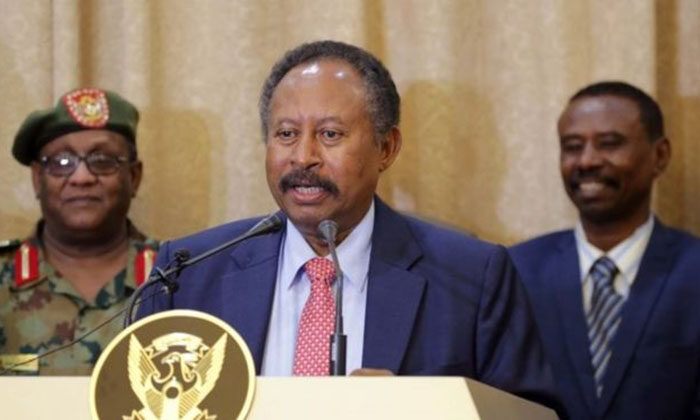
Sudanese Prime Minister Abdalla Hamdok. (COURTESY PHOTO)
Sudan, with 97% of the country’s population adhering to Islam, has officially announced changes in its criminal law, including the abolition of the death sentence for apostasy.
According to the Christian Post, this legal amendment giving Sudanese Christians hope for the future following the toppling of the Islamist regime of President Omar al-Bashir last year.
Sudanese Justice Minister Nasredeen Abdulbari revealed during a televised interview on 11 July, 2020 that the government is currently working to drop all discriminatory provisions in its constitution. Al-Bashir pushed for the Sharia law after he took power in 1989.
“We cancelled the Article 126 of the Sudanese Criminal Law and have ensured religious freedom and the equality in citizenship and rule of law,” he said.
“All these changes are aiming at achieving equality in front of the laws. We have dropped all the articles that had led to any kind of discrimination. We ensure our people that the legal reformation will continue until we drop all the laws violating the human rights in Sudan.”
Sudan has over the years been ranked as one of the worst countries in the world when it comes to Christian persecution, according to Open Doors USA’s annual World Watch List.
In his submission, Justice Minister Nasredeen Abdulbari noted that apostasy law exposes people to danger. Before, anyone convicted of leaving the Islamic religion in Sudan could face the death penalty.
Notably, independent Sudanese news outlet Dabanga reports that the new law still criminalizes apostasy, but demands that prosecutors protect those who are accused.
The new laws have also permitted the drinking of alcohol for Sudanese Christians and have forbidden lashing as an official punishment. According to the United Nations, about three percent of Sudan’s population is non-Muslim.
The new laws will also ban female genital mutilation (FGM), a practice that typically involves the partial or total removal of the external genitalia of girls and women, Abdulbari said.
Sudanese Christians live mainly in Khartoum and in the Nuba mountains near the South Sudan border. Some Sudanese also follow traditional African beliefs.
The transition government led by Abdalla Hamdok runs the country in an uneasy coalition with the military, which helped remove al-Bashir after months of mass protests.
“Very good news”
Faith McDonnell, the director of religious liberty programs and the Church Alliance for a New Sudan at the Washington, D.C.-based Institute on Religion & Democracy, told The Christian Post on Tuesday that it appears the transitional government “is working to change things.”
“Very good news that Sudan has passed amendments repealing apostasy, public flogging, female genital mutilation, and taken some other steps towards religious freedom,” she said. “This is good news for Sudanese Christians, particularly for those in the center of the country.”
McDonnell warned, though, that Sudan “has a long way to go.”
“For Sudan to make real strides for freedom and improvement of human rights it needs to establish rule of law based in international norms of religious freedom and democracy — not Sharia — and to give equal status and rights to the marginalized people groups, [such as] the black African Sudanese, who comprise the majority of the country.”
News Agencies contributed to this report.

